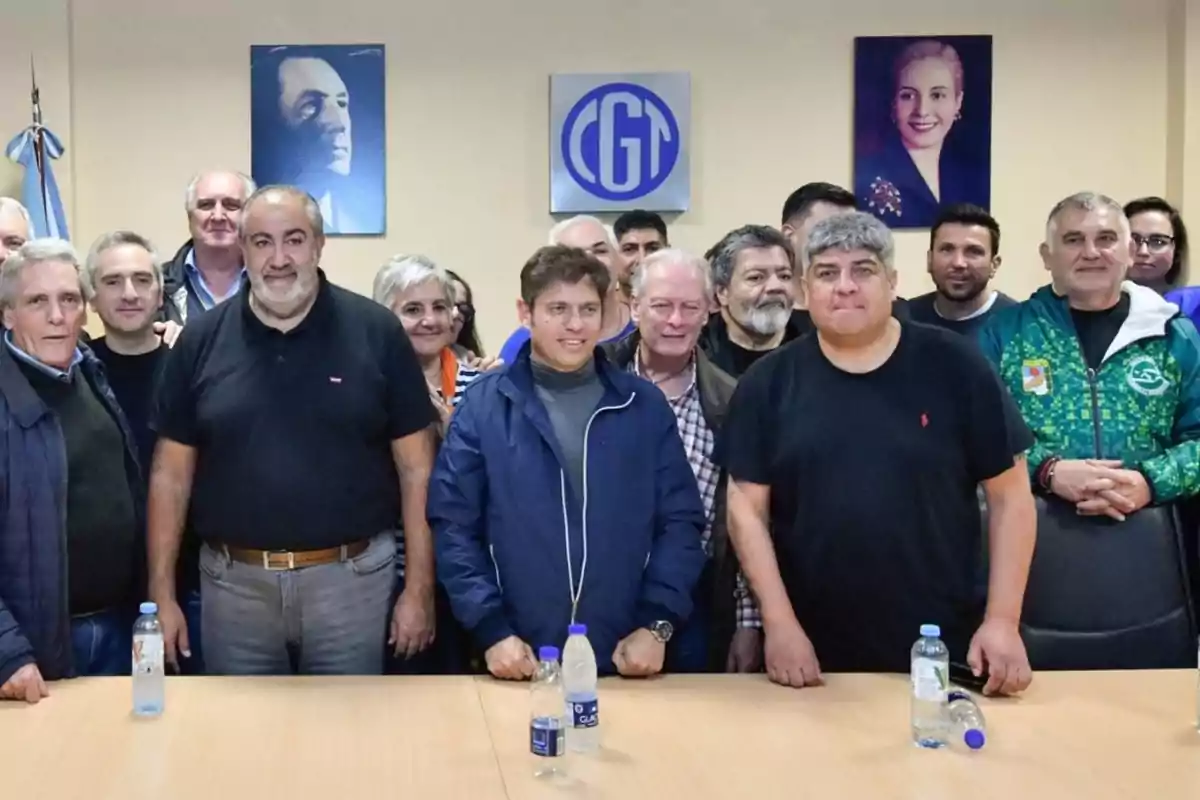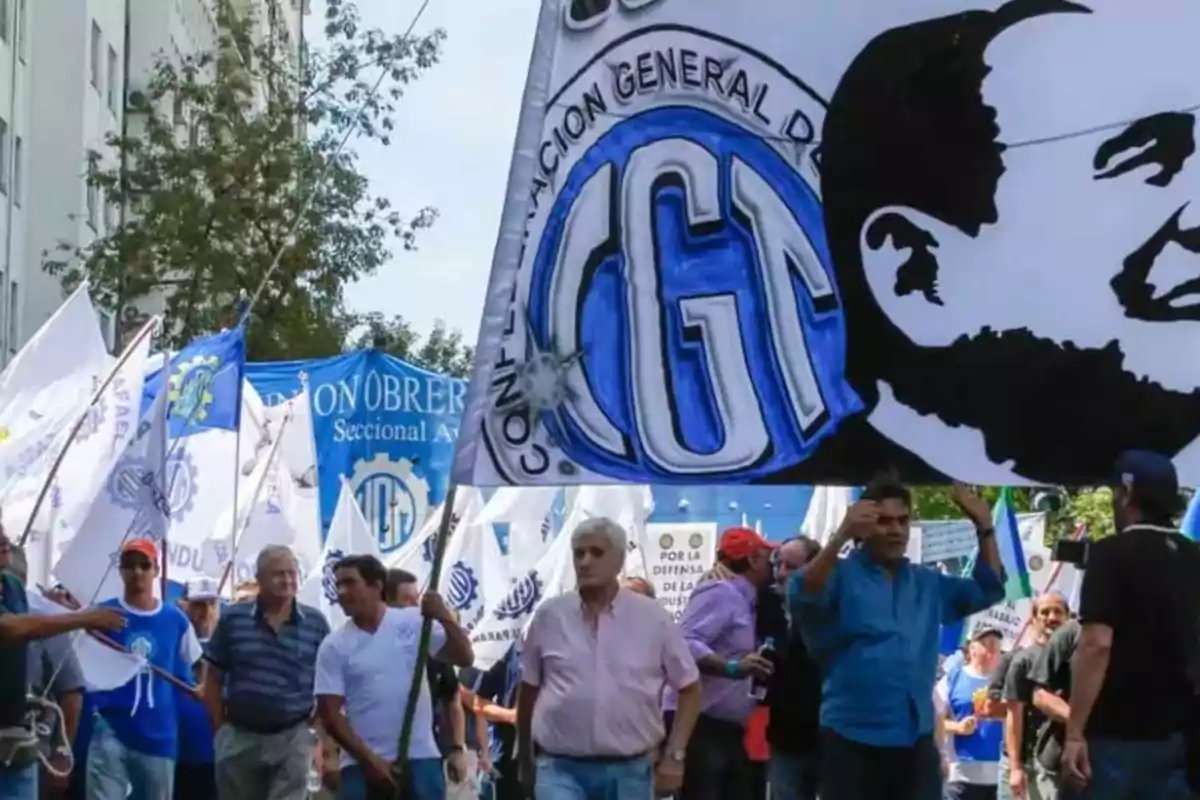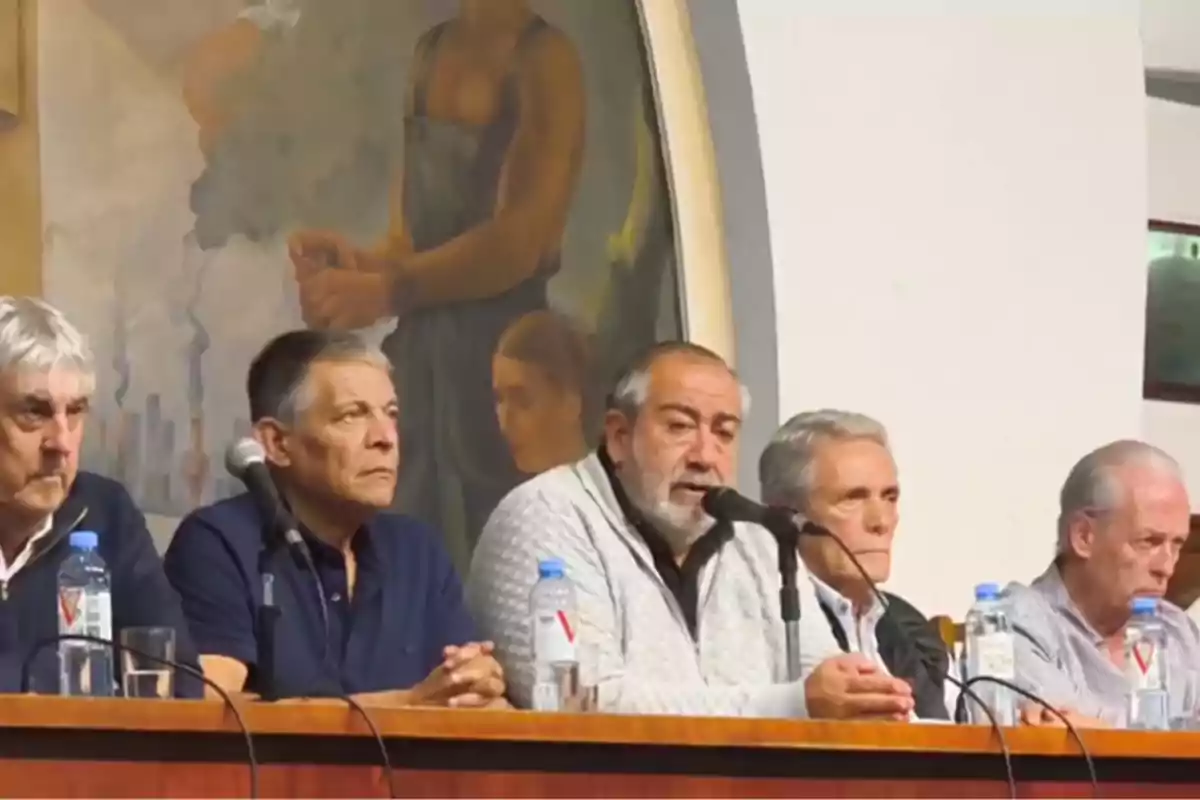
CGT called for a new mobilization: it will be on April 30, prior to Labor Day
The CGT would meet with Kicillof to establish support. It could be the fourth since Milei assumed the presidency
In a new chapter of the confrontation between the mafia-like union sectors and the reformist government of Javier Milei, the General Confederation of Labor (CGT) announced a new mobilization for Wednesday, April 30, on the eve of Labor Day. The announcement was made after a meeting of the Executive Council at the historic headquarters on Azopardo Street, in a context where the labor union is trying to regain prominence and privileges.
The call will be at 2 PM, from the intersection of 9 de Julio Avenue and Independencia, to the Monument to Labor on Paseo Colón at 800, just a few blocks from the CGT's central headquarters in San Telmo. It is a new demonstration in rejection of the structural reform policies promoted by the national Executive, despite the popular support expressed at the polls and in recent indicators of market confidence recovery.
The decision comes just days after the 36-hour national strike called for April 9 and 10, which had mixed adherence, with the notable absence of the Automotive Tramway Union (UTA), which reduced the real impact of the measure. Despite this, the CGT claimed it was a "resounding success", although without public transportation, the effective reach of the strike was limited.

"The CGT opened a reasonable truce and it was a demonstration that we can also dialogue when the results are not favorable," expressed Juan Carlos Schmid, general secretary of the embarked personnel of Dredging and Beaconing. However, his own statements acknowledge the limited room for maneuver of unionism in the face of a society that demands results and transparency, not corporatism and privileges.
In the same tone, Schmid insisted that "the adjustment program did not bring growth," although macroeconomic data and projections from international organizations are beginning to reflect a stabilization that, after years of imbalance, many consider historic. Far from presenting concrete proposals, the CGT insists on a narrative that seeks to reinstall the logic of conflict as the only mode of participation.
The leader of the CATT (Argentine Confederation of Transport Workers) warned: "If the situation continues to worsen, the conflict will continue to grow," evidencing a strategy of confrontation that bets on political wear rather than serious debate on reforms.
Sergio Palazzo, general secretary of La Bancaria, went further and linked the march not only with Labor Day but also with the rejection of the agreement with the International Monetary Fund. "There are increasingly strong needs in the income of Argentines that have declined, there is repression every time there are protests, there is an agreement with the IMF that will condition the destinies of many Argentines," he stated, in a line of discourse that resonates with slogans of the past.

The co-secretary Héctor Daer, another figure of the CGT triumvirate, stated that the last strike "was felt in all industrial sectors, in all transportation, in all services, and in all sectors that drive the economic process." However, the lack of support from public transportation—especially buses, vital for the mobility of millions of workers—strongly relativizes this statement.
Asked about the stance of the UTA, which decided not to join the strike, Schmid distanced himself: "It's a problem that exceeds us because we don't have the representation of the drivers." He also acknowledged that "they have no reasons to go on strike," which evidences a rift within the labor movement itself.
Meanwhile, in an attempt to rebuild bridges with the Peronist political leadership, the CGT hopes to meet with governors after the march, with the prominent—though not yet confirmed—presence of Buenos Aires Governor Axel Kicillof. The labor union, however, did not hide its displeasure at the lack of support from the Justicialist Party during the last strike. "Peronism is trapped in a maze, it's a shame they didn't express themselves before the strike. We are an important vector and it would have been good for the authorities to issue a precise statement," Schmid lamented.
More posts: